Twilight Sad - Interview
by John Clarkson
published: 16 / 2 / 2012
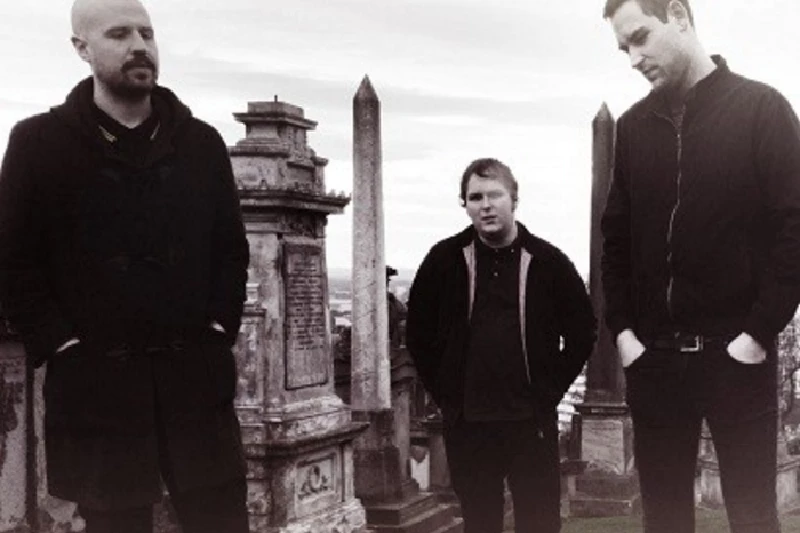
intro
John Clarkson speaks to James Graham from brooding Scottish rock band the Twlight Sad about his band's post-punk influenced third album, No One Can Ever Know’
There is an underlying sense of violence and tragedy in the Twilight Sad’s lyrics. ‘That Summer, At Home I Had Become the Invisible Boy’ from their 2007 debut album, ‘Fourteen Autumns and Fifteen Winters’, has the lines “They're standing outside and they're looking in/The kids are on fire in the bedroom," while on ‘And She Would Darken the Memory’ from the same record the words include “And head up dear/The rabbit may die/'Cause I'm putting the boot in tonight.” The lyrics on their 2009 second album, ‘Forget the Night Ahead’, are equally vituperative and dark, one track, ‘I Became a Prostitute' , for example, beginning with the line, "There’s a girl in the crowd and she’s bawling her eyes out/If they bleed you dry, we’re taking half your tide." On their just released third album, ‘No One Can Ever Know’, which has come out like its predecessors on the Brighton-based independent label Fat Cat, it is in this respect business as usual. While vocalist and lyricist James Graham has always refused to talk about the stories behind his lyrics and what they mean, they are as bleak and foreboding as before. “She had the answer, but she is lying on the road,” he sings in his distinctive Caledonian brogue on opening track ‘Alphabet’. The sinister ‘Nil’ starts with the lines, “And I remember that day was her last/and when the tempers that fray can’t go back/Be careful what you are selling.” Later on it there is the recriminatory chorus of “We all know whose fault it was.” ‘Not Sleeping’ meanwhile is suggestive of irreparable damage and loss with its repeated chorus of “No one knows where she has gone.” ‘No One Can Ever Know’ is , however, in all other senses a departure for the band, who come from Kilsyth, a North Lanarkshire of 10, 000 that lies halfway between Glasgow and Stirling, and was once renowned for having the highest proportion of council housing in Europe. While the band are supplemented for live purposes with the addition of Martin Doherty (keyboards) and Johnny Docherty (bass), it is the first album to find the group stripped to a recording unit of three-Graham, Andy MacFarlane (music) and Mark Devine (drums and programming)-after the departure of bassist Craig Orzel. Recorded at The Pool studios in London with the help of “anti-producer” Andrew Weatherall (Primal Scream, Beth Orton, My Bloody Valentine, Siouxsie Sioux and Fuck Buttons), ‘No One Can Ever Know’ also finds the Twlight Sad shifting away from the scorched, heavy guitar sound of their first two albums. Inspired by a post-punk listening diet of Cabaret Voltaire, Magazine, Autechre, the Banshees, Public Image Ltd and Can, it is a no less intense experience. Its dominant instruments are, however, analogue synths rather than guitars, and it has a sparser and colder, more militant sound. One might imagine that talking to James Graham might be an intense, imposing experience, but, in what was his second interview with Pennyblackmusic, he proved that his musical persona and real persona are distinct from each other. PB: Many of the reviews of ‘No One Can Ever Know’ have found it to be a grower as an album. It is an album that you have to listen to three or four times, but then it really grows on you. Is that the sort of reaction that you expected from it? JG: To be honest, I have felt that all of our albums are ones that you have had to go back to and listen to. I have always thought that we were a band that maybe upon first listening you might not get us, and then it would definitely take repeat listens to maybe understand or like what we do. I feel the same way about this one as well. I don’t think that we are ever going to write immediate pop songs if you can call them that because we are not really a verse-chorus kind of band. The structures of the songs are always quite complex, and sometimes that maybe puts people off who want more immediate things. You are not going to get that with us though (Laughs). I always think people who like our band are people who are prepared to give time to music. There is so much music out there that it is easy to do that and to move onto the next thing, but we seem to attract people who want more from music than that (Laughs). PB: You brought in Andrew Weatherall to produce the album, but eventually you decided to produce it yourself. You kept him on as an “anti-producer”. What did you mean by that? JG: I have no idea what that means (Laughs). What happened though was we had got Andrew on board as a producer. We were sending him demos and he was sending us play lists of songs or songs with sounds that he thought that we were aiming for. His play lists were bang on as they were exactly what we were going for. We did a lot of pre-production beforehand, and then we went down to London and started recording it on our own before Andrew came in. At that point he sat us down and told us that anything that he would have told us to do we had already done, and that he wouldn’t be able to sleep at night putting his name to something that we had done the hard work for. We still wanted him to be involved and he wanted to be involved as well. It was good to have him there as someone to bounce ideas off him as his musical knowledge is through the roof. PB: How well did you know him beforehand? JG: We met up with him just after we had done the first demos for the album. He was DJ-ing in Glasgow, and we met up with him in his hotel room. He was saying all the right things then and we got on really well. We liked what he had done with the Fuck Buttons record, ‘Tarot Sport’, and obviously he has done a lot of big records in the past as well with the likes of Primal Scream. We knew that he was already a fan of the band because he is friends with Alex Knight who co-runs Fat Cat. They used to DJ with each other in the 90’s. We had a list of people that we wanted to work with and Andrew was on it. We were really pleased when he agreed to work with us. PB: You have cited bands such as Cabaret Voltaire, Magazine, the Banshees, Public Image Ltd and Can as being the main inspiration for this record. Were they all bands that you had been listening to anyway or were they amongst the things on the play lists that Andrew Weatherall gave you? JG: No, Andy (MacFarlane-Ed) has been listening to them already for a long time. It is not a new thing. He had listened to them a lot anyway, but it had moved to the forefront of what he was listening to now. When we gave Andrew the early demos, he said that he felt the same way about the demos as we did, and that they sounded like those early new wave and post punk bands. PB: You bassist Craig Orzel left two years ago in 2010, shortly after ‘Forget the Night Ahead’ came out. Has that changed the way the band works at all? JG: Not really to be honest. When Craig left, it was a surprise, but at the same time it came on the back of a really shit tour. We had just been robbed in Italy, and it was a pretty bad time for the band. We are still friends with Craig, but it was the right thing for him to do and it was the right thing for the band. The core element of the band is still there, and the song writing process has never really changed. It was the same with this album. Andy sent me the music, and I then wrote along to that. We basically work out the structures and the melodies, and then layered it up from there. Andy had always written the bass lines. Nothing has really changed. In fact the only thing that has changed is that that Craig is not in the band anymore (Laughs), but we have replaced one crazy guy with another crazy guy (Laughs). PB: You have now got Johnny Docherty from Take a Worm for a Walk Week on bass and Martin Doherty from Aerogramme on keyboards for live purposes now. JG: We seem to attract mental bass players (Laughs), but I think that Johnny has definitely improved the band as a live act a hundred percent. It feels like everything is a lot more driving these days. That is not saying anything against Craig at all because when he was in the band it was great, but Johnny has added a new dimension. He has brought a breath of fresh air into it. PB: You have described your lyrics in the past as being based on experiences that have happened to the band in your home town of Kilsyth and to the people that you know. Is that still where your lyrics come from, and what you have seen and heard there? JG: Yeah, it has always been that. The theme has changed on each record. The last record was more about me than other people and more me commenting on myself. This one is more of an observational record maybe. I don’t think that I will ever change that. I don’t want to ever change that. I want our music and lyrics to come across as honest as possible. PB: You have always said that you don’t want to explain what the exact meaning of your songs are about . They have been described as being “perennially unhappy” and are often seen as being miserabilist. Could you ever see yourself writing a happy song? JG: No (Laughs). I don’t really think that I am the most miserable person in the world. Other people might disagree with me though (Laughs). We all go through up and downs, and I just find the darker side more interesting than someone harping on about how good their life is, which is not true anyway. To get the ups you need to go through the downs as well. I just focus on that side of life. I enjoy darker music and darker films to be honest. It is just the way I write. If I have got nothing to write about, then I won’t write, but I am pretty sure that I will never find anything happy to write about (Laughs). PB: Do you see your writing then as self-therapy then? JG: I thought that it was weird the first time that I thought about it in that way, but I do. It is a way to get things off my chest, and, as I don’t tell anybody what they are about anyway, it is something just for me really (Laughs). I don’t really need therapy (Laughs), but it does work out that way sometimes. PB: The group takes its name from a line from a poem by Wilfred Owen, ‘But I Was Looking at Permanent Stars’. Has literature had any bearing on your lyrics or is that complete chance? JG: That is complete chance (Laughs). Mark came into the studio before we had written the first album, and we were still looking for a band name. He reads a bit more than I do and he came in and said the name, and it was one of these things where it stuck, and we couldn’t think of anything better and so it stuck. It sounds stupid, but I just read graphic novels and comic books, so I am not influenced by books at all (Laughs). I am kind of glad that I am not more of a reader because I would be worried about maybe ending up going up my own arse (Laughs). I wouldn’t want to do that. The thing about me is what you see is what you get and I try to get that across in the songs as well. I am not trying to be anything that I am not. Maybe there are a lot of writers who can write more intelligent lyrics and who have read a lot more than I have done , but I just do what comes naturally and that is what comes out. PB: At the time of ‘Forget the Night Ahead’ you said, to quote you, “We don’t really know where we are in this whole music industry thing. It’s not like we are a stadium band. We’re not a lads’ band, like Oasis or something. We’re not a scenestry band, and yet we’re not a pure experimental band either. ” Are you any more aware of where you fit in or you don’t fit into it now? JG: No, I still can’t see where we are in it. We are quite a weird one. We seem to do well. In Glasgow we played at the ABC in front of 1300 people. I never thought that would happen to us as I never saw us being that kind of band. That is our home town though and there are more people who know us there. There are still places though in contrast where we play in front of just fifty or a hundred people. We have not been on the front of magazines. We have not been on the telly. We have not been on major radio. BBC6 plays us which is amazing, but there are other bands that are getting more radio play across the world than us and are getting more hyped up. We seem to be going quietly about our business and just releasing our albums. Things, however, seem to be building slowly for us, and I am happier that it is going that way because it means that we will appreciate it more. It is a more natural thing than being thrown in the limelight and having people telling us how great we are and that kind of thing. It is probably why we have lasted as long as we have as well, and I think that is going to help us go longer too. It is not easy to financially live off being in a band, especially as not as many people are buying records anymore. We are scraping by at the moment, but it is not easy. We are, however, just managing to get by which means that we are going to have to tour and work even harder in the future. I honestly still don’t where we are and what people think of us. I just know that there are people who like the band and that we seem to attract a loyal kind of following. All we want to do is keep that following, but hopefully for it to grow a little bit more as well. We always write the music for ourselves, but ultimately if other people like it that is amazing. We never think about anything- It is quite selfish I suppose-apart from if we like it or not. At this point we are still friends who happen to be in a band together and write music. The ethos-I don’t know if we have ever used that word before (Laughs)-has not changed at all. It is not what about what we are wearing or anything like that. There is no bullshit with us. PB: You have always been a visceral, loud act on stage. ‘No One Can Ever Know’ is a much sparser and quieter record than the last two albums. You toured in December and played some of the songs then from it. How have those songs translated onto stage? JG: To me they felt pretty good. They are still pretty loud when we perform them live, but I feel they give the whole set a bit of breathing space. When you’re playing longer sets as we have started doing as we have got more material, you need that instead of being constantly barraged with this wall of noise all the time. I really feel that this album is what the band needed and especially when we are going to be out playing it live. Now there are going to be more ups and down in our sets rather than just going out and absolutely murdering people’s ears constantly (Laughs). I definitely feel that it is better for the people watching the band and also for the band. I don’t think that we could have just kept on doing that, but at the same point on that last tour I had the worst tinnitus I have ever had in my life (Laughs). PB: You are touring the States in April. What happens after that? JG: We are going to mainland Europe and will doing three weeks over there between April and May. Hopefully we will be asked to do some festivals too over the summer. We want to tour as much as possible. We want to go to places also that we have never been before. We are a working band. We want to be out there working. PB: Thank you.
Picture Gallery:-
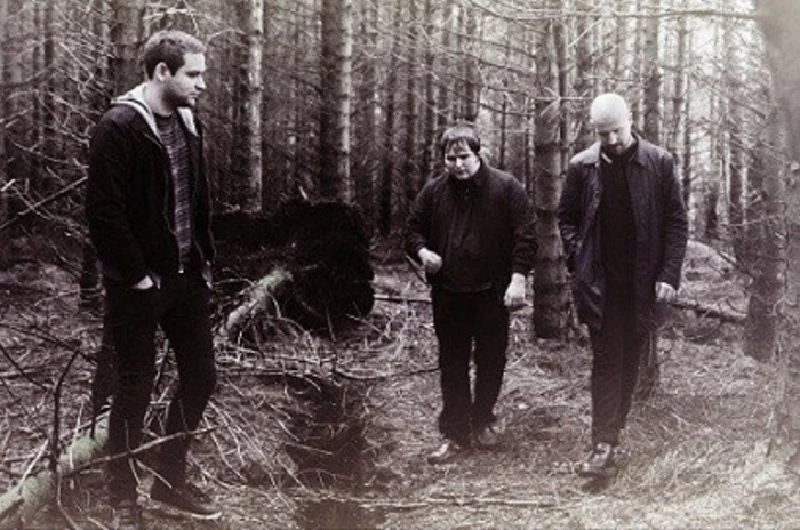
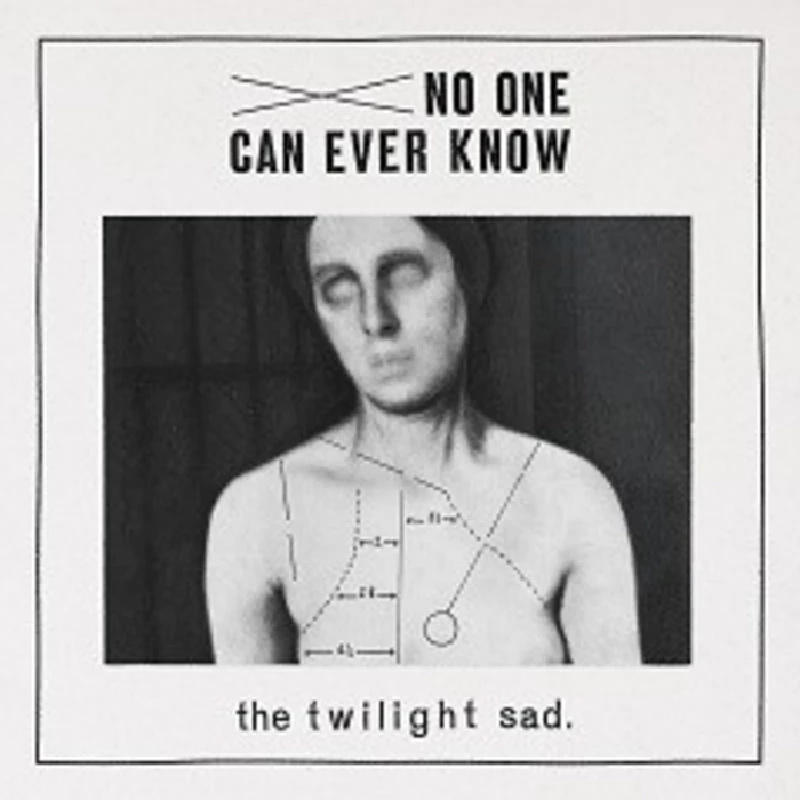
interviews |
|
Interview (2008) |
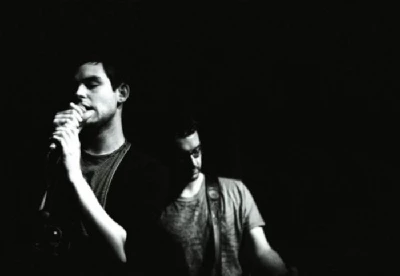
|
| John Clarkson speaks to James Graham from Scottish based act the Twilight Sad about his band's much acclaimed debut album, 'Fourteen Autumns and Fifteen Winters', and the extremes of his group's music |
live reviews |
|
Richmond Park, Glasgow, 30/8/2014 |
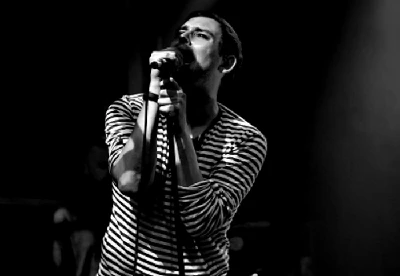
|
| At the chaotic Last Big Weekend Festival in Glasgow, Tony Gaughan watches brooding Scottish post-rockers the Twilight Sad play a short but intense and brilliant gig |
| Ruby Lounge, Manchester, 10/2/2012 |
| Ruby Lounge, Manchester, 23/10/2009 |
| Bongo Club, Edinburgh, 15/6/2008 |
| Cabaret Voltaire, Edinburgh, 29/11/2007 |
photography |
|
Photoscapes (2014) |
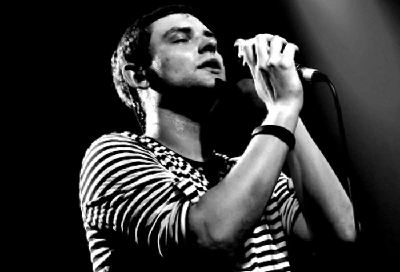
|
| Darren Aston takes photographs of Scottish post-punk act the Twilight Sad at the East Village Arts Club in Liverpool |
reviews |
|
Forget the Night Ahead (2009) |
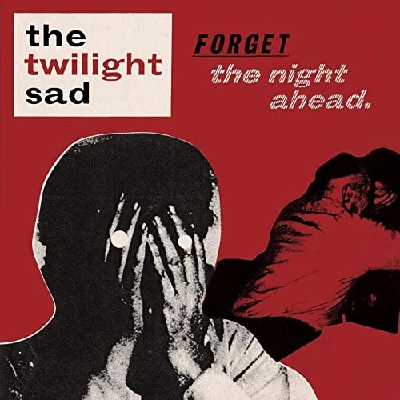
|
| Dark and enigmatic, but evocative second album from much acclaimed Scottish-based post rockers, the Twilight Sad |
| Here It Snowed. Afterwards It Did (2008) |
| And She Would Darken the Memory (2007) |
| Fourteen Autumns and Fifteen Winters (2007) |
most viewed articles
current edition
Carl Ewens - David Bowie 1964 to 1982 On Track: Every Album, Every SongArmory Show - Interview with Richard Jobson
John McKay - Interview
Colin Blunstone - Thalia Hall, Chicago, 16/7/2025
Billie Eilish - O2 Arena, London, 10/7/2025
Bathers - Photoscapes 1
Loft - Interview
Visor Fest - Valencia, Spain, 26/9/2025...27/9/2025
Sir Tim Rice - Interview
Robert Forster - Interview
previous editions
Manic Street Preachers - (Gig of a Lifetime) Millennium Stadium, Cardiff, December 1999Heavenly - P.U.N.K. Girl EP
Beautiful South - Ten Songs That Made Me Love...
Oasis - Oasis, Earl's Court, London, 1995
Peter Perrett - In Dreams Begin Responsibilities Interview Part One
Boomtown Rats - Ten Songs That Made Me Love....
Coldplay - Wembley Arena. London, 16/8/2022
Prolapse - Interview
Pixies - Ten Songs That Made Me Love...
Trudie Myerscough-Harris - Interview
most viewed reviews
current edition
Davey Woodward - Mumbo in the JumboSick Man of Europe - The Sick Man of Europe
Lucy Spraggan - Other Sides of the Moon
Amy Macdonald - Is This What You've Been Waiting For?
Phew, Erika Kobayashi,, Dieter Moebius - Radium Girls
Suzanne Vega - Flying With Angels
Bush - I Beat Loneliness
Alice Cooper - The Revenge of Alice Cooper
Cynthia Erivo - I Forgive You
Blueboy - 2
Pennyblackmusic Regular Contributors
Adrian Janes
Amanda J. Window
Andrew Twambley
Anthony Dhanendran
Benjamin Howarth
Cila Warncke
Daniel Cressey
Darren Aston
Dastardly
Dave Goodwin
Denzil Watson
Dominic B. Simpson
Eoghan Lyng
Fiona Hutchings
Harry Sherriff
Helen Tipping
Jamie Rowland
John Clarkson
Julie Cruickshank
Kimberly Bright
Lisa Torem
Maarten Schiethart